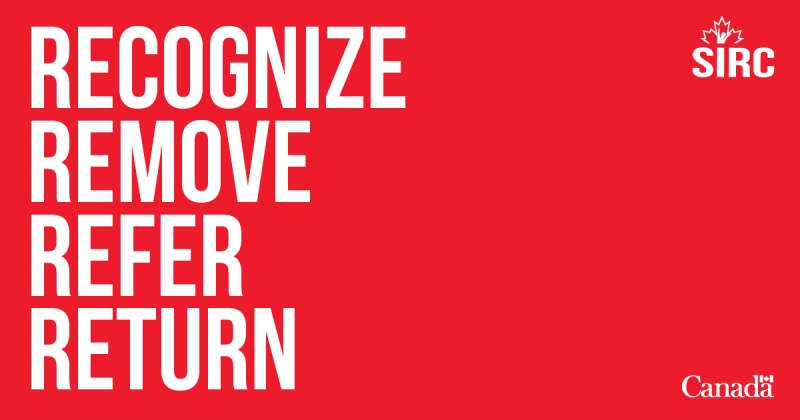Every sport organization faces tough decisions around where to channel its limited budget and human resources.
“It’s no different in ringette, but we’ve found that by putting our values first, it can actually make decisions easier,” according to Natasha Johnston, Executive Director of Ringette Canada. “That’s one of the main reasons why we’ve put so much emphasis on concussions because one of our core values is putting the health and safety of our athletes at the centre of everything we do.”
In a sector where alignment from the grassroots to the high-performance levels has always been challenging, there are leaders at the club, provincial and national levels in ringette who are committed to a consistent, harmonized approach around concussions.
“We have to make the information simple, relevant and easy to access,” says Pamela Julian, who took over last summer as Executive Director of Ringette Ontario. “Players don’t want to miss out because of injury, and sometimes the parents can push pretty hard to get their child back on the ice. So getting the right information out there consistently is key – and reinforcing it as often as possible.”
One of Ringette Ontario’s (RO) current initiatives is the creation of a comprehensive injury information package including a 7-10 day post-injury follow up from RO. Pamela Julian says a core element of the package will be a link to a concussion resource page on the Sport Information Resource Centre (SIRC) website that has become the “go to” hub for research, tips and tools. With financial support from Sport Canada, the site features the latest Canadian and international research as well as a suite of templates and sample products to help sport organizations at any level.
At the heart of awareness efforts are the “4 Rs” that give clear direction to everyone involved in sport –
1) Recognize the signs and symptoms of a concussion;
2) Remove the athlete from the game or practice;
3) Refer the athlete to a healthcare professional; and
4) Return to school and then to sport based on the recommendations of a physician.
Education is having an impact, according to Phyllis Bergmans, President of the City of Ottawa Ringette Association (CORA). “Ours is a fast game and we do see a lot of high-speed collisions,” she says. “We’ve been doing a lot to make everybody in our sport more aware of the proper protocols. What’s encouraging is that we’re seeing players and parents who understand how important it is to give enough time for a full recovery and to only allow for return to school and play when the athlete is ready.”
For Natasha Johnston, the SIRC concussion website is a big piece in the education puzzle. “There’s a uniformity around concussions that we haven’t had before. We know that we need to be taking action to raise awareness about prevention and proper treatment and these resources are user-friendly and easy to find. At the end of the day, it’s the right thing to do. And our athletes deserve it.”
This blog is part of SIRC’s #HeadstrongCanada concussion awareness, prevention and management campaign. The campaign features tools, resources, and best practices in managing and preventing concussions in sport in Canada. Developed in partnership with Sport Canada, Public Health Agency of Canada and other organizations, the toolkit offers credible information and templates recognized by stakeholders throughout the sport system.
Check out the concussion website for concussion information and tools to help your sport be concussion smart. For concussion information directly to your inbox, sign up for SIRC’s concussion newsletter.